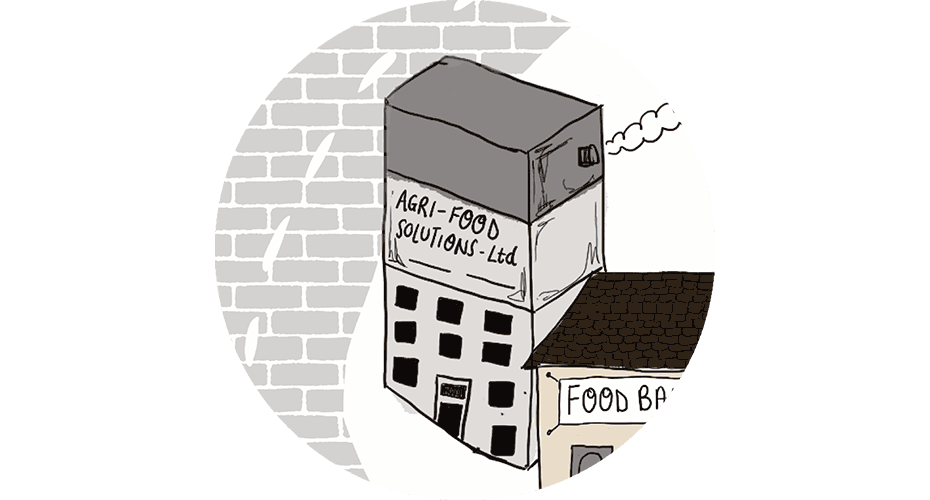- Home
- Research and Innovation
- Our networks
- Exeter Food
- Research themes
- Exeter Food
- Research themes
- Food, Climate Change and Environmental Sustainability
- Alternative Food Networks and Circular Economy
- Food Markets and Global Trade
- Biodiversity and Human-Animal Relations
- Enhancing Food Productivity
- Food, Climate Change and Environmental Sustainability
- Food History, Culture, Heritage and Intellectual Property
- Food (In)security, Food Justice and Planetary Health
- Impact and Management of Pathogens and Infectious Disease in Food Systems
- Labour, Livelihoods and Wellbeing in the Food Sector
- Nutrition, Health and Human Performance
- Pollution and Waste in Food Systems
- Social Isolation and Commensality
- Tourism, Hospitality and Sustainable Development
- Collaborations
- Study and training
- News
- Events
- Members
- Join us
Research themes
Exeter Food is working toward a better understanding of the significance of food in the human experience, and solutions to our world’s most pressing food-related problems. We work in places around the world, conducting research all along the food chain, examining the dynamics of contemporary food systems, the legacy of historical foodways, and the possibilities for healthier, greener, and more equitable food futures.
Explore our themes below.














Food, Climate Change and Environmental Sustainability
Exeter Food members research environmental problems and sustainable solutions in food production in a range of aquatic and terrestrial contexts, from capture fisheries and aquaculture, to agricultural, pastoral and agroforestry systems, to sites of consumption including institutional catering and consumer choice. Research on food and climate change includes work all along the food chain, from plant and animal breeding to dietary choice. While much of this work addresses dynamics of global scale, research is also grounded in specific locales, from smallholder farms in East Africa to international institutions such as the Food and Agriculture Organisation.
Food Markets and Global Trade

Exeter Food research in this area encompasses work along the food chain, from factors of production to consumer behaviour, while addressing the trade of food at a range of scales, from international trade to domestic and municipal regulations, to local markets.
Biodiversity and Human-Animal Relations

Research conducted by Exeter Food members under this theme includes work on how agriculture effects pollinator species and mitigation of its impact, historical perspectives on human attitudes toward the consumption of animals, the feeding of animals by humans, and the protection of animal species threatened by human food systems, with work conducted in the UK and around the world.
Alternative Food Networks and Circular Economy

The research of Exeter Food members in this area includes work on place-based food systems, local procurement schemes, and other ways of shortening food chains, as well as the benefits of such initiatives, from community building to energy efficiency and greater environmental sustainability.
Labour, Livelihoods and Wellbeing in the Food Sector

Exeter Food research on this theme encompasses work on migrant and domestic labour forces in the United Kingdom, including people working in fisheries and agriculture as well as those working on food in processing, food service and the domestic sphere. This work looks not only at labour markets and practices, but also at the wellbeing of those involved in food work, whether historically or in the present day.
Enhancing Food Productivity

Research conducted by Exeter Food members under this theme encompasses work on how to improve disease resistance, productivity and sustainability in both agriculture and aquaculture, including work on fish and livestock farming without medicalisation. Research in this area also focuses on Open Science and data-intensive agriculture, and on novel food production such as seaweed farming. It also includes work on the historical evolution of subsistence food strategies from pastoralism to agriculture.
Food History, Culture, Heritage and Intellectual Property
.jpg)
Exeter Food members engage with the history and culture of food across the ages, as well as examining the place of food heritage in our world today.
Impact and Management of Pathogens and Infectious Disease in Food Systems

Exeter Food members' research on this theme includes work on modelling and mitigating the impact of plant pathogens, the management of infectious disease in livestock systems, the challenge of antimicrobial resistance, and the impact of Covid-19 on food systems.
Food (In)security, Food Justice and Planetary Health

Research carried out by Exeter Food members on food insecurity and hunger engages with communities around the world as well as those in the immediate environs of the University's campuses, and includes historical, as well as contemporary, work on famine and food poverty. Work in this area includes research on how food systems and food access are not only shaped by structural inequities, but also affected by dynamic processes such as shifting political landscapes (e.g., Brexit), national and global economic events (e.g., the financial crisis of 2007-2008 and subsequent austerity policies), environmental forces (e.g., the climate crisis) and public health events (e.g., the Covid-19 pandemic).
Pollution and Waste in Food Systems

Exeter Food researchers study pollution and a range of toxins in food systems, as well as waste, from harvest through food processing to domestic contexts.
Tourism, Hospitality and Sustainable Development

The work of Exeter Food members on this theme encompasses research on individual practices and institutional initiatives, contemporary and historical, from the Southwest of England to the international scale.
Nutrition, Health and Human Performance

The work of Exeter Food members in this area includes research on obesity and diet-related disease as well as interventions to promote healthy eating, support gut health, and improve health and physical performance. A wide range of populations are beneficiaries of this research, from children to active adults and the elderly, and from athletes to cancer patients and people experiencing dementia.
Social Isolation and Commensality

Several Exeter Food members have worked on the problem of social isolation and the detrimental effects of eating alone, and explored how commensality can address poor dietary practices and foster healthier communities.



